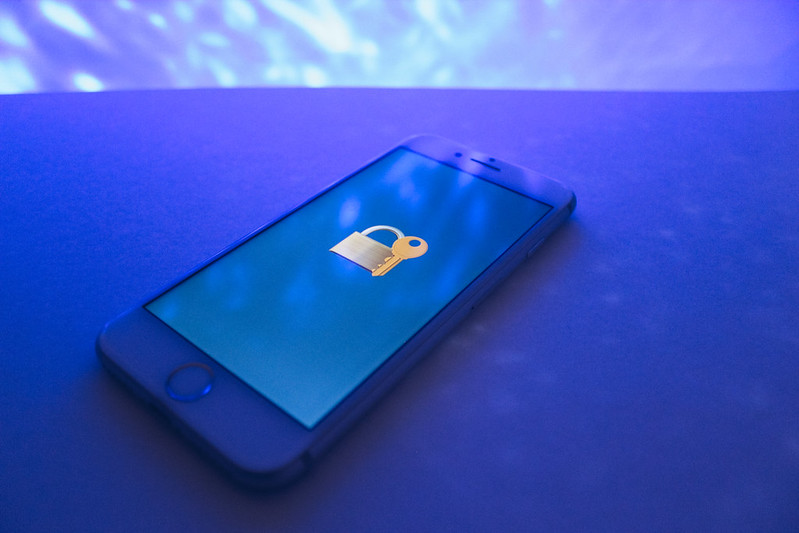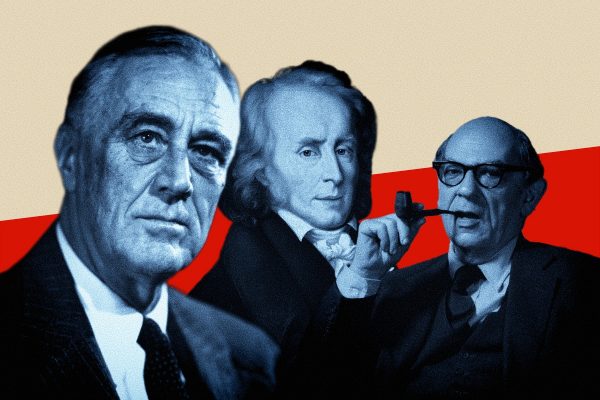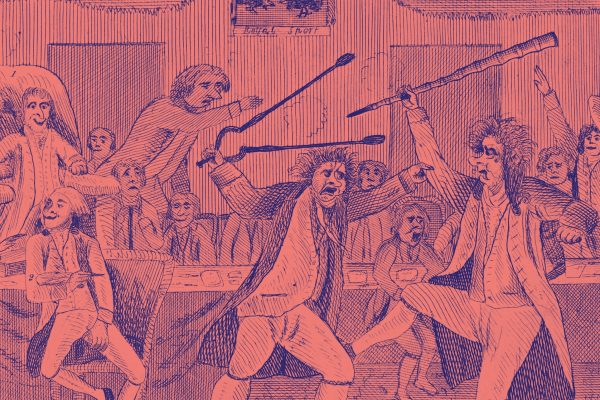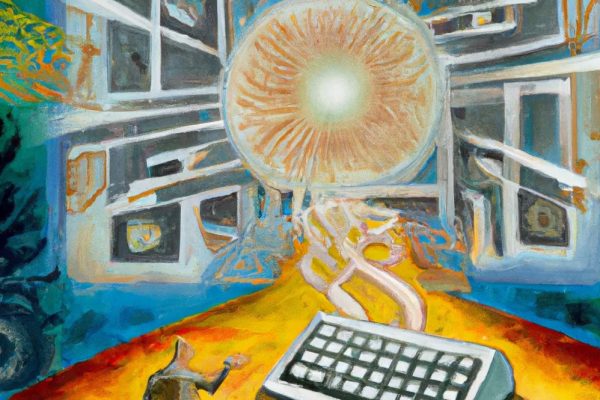Imagine having a master key for your life. Would you go around making copies of it and giving them out to strangers? Probably not. So why are you willing to give up your personal data to pretty much anyone who asks for it?
Privacy is like the key that unlocks the aspects of yourself that are most intimate and personal, that most make you you. Your naked body. Your sexual history and fantasies. Your past, present, and possible future diseases. Your fears, your losses, your failures. The worst things you have ever done, said, and thought. Your inadequacies, your mistakes, your traumas. The moment in which you have felt most ashamed. That family relation you wish you didn’t have. Your most drunken night.
People who do not have your best interests at heart will exploit your data to further their own agenda. And most people and companies you interact with do not have your best interests as their priority. Privacy matters because the lack of it gives others power over you. Even more than monetary gain, personal data bestows power on those who collect and analyze it, and that is what makes it so coveted.
The only thing more valuable than money is power. Power can get you anything and everything. If you have power, you can have not only money, but also the ability to get away with anything you want to do. If you have enough of it, it can even allow you to be above the law.
There are two aspects to power. The first is what philosopher Rainer Forst defined as “the capacity of A to motivate B to think or do something that B would otherwise not have thought or done.” Powerful people and institutions can make you think and do things. The means through which the powerful enact their influence are varied. They include motivational speeches, recommendations, ideological narratives of the world, seduction, and credible threats. In the digital age, they can include sorting algorithms, persuasive apps, personalized ads, fake news, fake groups and accounts, and repeating narratives that paint tech as the solution to our every problem, among many other means in which power is exerted. We can call this soft power.
The second aspect of power is brute force. Max Weber, one of the founders of sociology, describes this second aspect of power as the ability of people and institutions to “carry out their own will despite resistance.” We can call this hard power.
In short, powerful people and institutions make us act and think differently from the way we would in the absence of their influence. If they fail to influence us into acting and thinking as they want us to, powerful people and institutions can exercise force upon us—they can do unto us what we will not do ourselves.
Indeed there is a tight connection between power and knowledge. Power creates knowledge and decides what gets to count as knowledge. Through collecting your data and learning about you, Google becomes empowered, and that power allows Google to decide what counts as knowledge about you through its use of your personal data. If Google classifies you as a middle-aged man without a college degree and suffering from anxiety, say, that gets to count as knowledge about you—even if it’s completely wrong, or out of context, or outdated, or irrelevant. Through protecting our privacy, we prevent others from being empowered with knowledge about us that can be used against our interests. By having more power, we have more of a say in what counts as knowledge. We should partly get to decide what counts as knowledge about ourselves; we should have a say in what others are allowed to perceive or infer about us.
The more someone knows about us, the more they can anticipate our every move, as well as influence us. One of the most important contributions of Michel Foucault to our understanding of power is the insight that power does not only act upon human beings—it constructs human subjects. Power generates certain mentalities; it transforms sensitivities; it brings about ways of being in the world. In that vein, political and social theorist Steven Lukes argues that power can bring about a system that produces wants in people that work against their interests.
People’s desires can themselves be a result of power, and the more invisible the means of power, the more powerful they are. An example of power shaping preferences is when tech uses research about how dopamine works to make you addicted to an app. Imagining how good a chocolate cake will taste motivates you to buy it and eat it. Anticipating how validated you’ll feel when your friends like the way you look motivates you to take a selfie and share it online.
Tech companies use tactics such as creating irregularly timed rewards—that’s what makes slot machines so addictive—and using ashy colors to get you to engage as much as possible with their platform. Likes and comments on your posts give you a little dopamine hit. Your desire to engage with a persuasive app does not arise from your deepest commitments and values. You usually don’t wake up thinking, “today I want to spend three mindless hours scrolling through Facebook’s infinite newsfeed.” Your desire is produced by the power of tech. In that sense, it is not entirely yours. Another example is political campaigners researching your convictions and affective and cognitive inclinations to show you an ad that will nudge you towards acting the way they want you to act.
Power derived from knowledge, and knowledge defined by power, can be all the more dominant when there is an asymmetry of knowledge between two parties. If, say, Facebook knows all there is to know about you, and you know nothing about Facebook, then Facebook will have more power over you than if both parties knew equal amounts about each other. The asymmetry becomes starker if Facebook knows everything there is about you, and you think Facebook knows nothing, or you don’t know how much Facebook knows. That makes you doubly unknowing.
The power that comes about as a result of knowing personal details about someone is a very particular kind of power, although it also allows those who hold it the possibility of transforming it into economic, political, and other kinds of power. Conversely, the power that privacy grants us collectively as citizens is necessary for democracy—for us to vote according to our beliefs and without undue pressure, for us to protest anonymously without fear of repercussions, to have freedom to associate, speak our minds, read what we are curious about. If we are going to live in a democracy, the bulk of power needs to be with the people. And whoever has the data has the power. Privacy is important because it gives power to the people. Privacy is a public good, and defending it is our civic duty.
Perhaps a few decades ago it would’ve been enough to argue that we need privacy in order to sustain liberal democracies. But these days democracy is not at the height of its popularity. Only a third of Americans under thirty-five say that it is vital to live in a democracy. Around the world, civil liberties and political rights have declined in the past twelve years—in 2017 only thirty-five countries had improved, while seventy-one had lost ground. The attacks on democracy have only accelerated during the coronavirus pandemic. According to Freedom House, a think-tank in Washington, democracy and respect for human rights have deteriorated in 80 countries since the outbreak of the coronavirus.
It is therefore necessary to make a case for why you should still fight for liberal democracy—even if your current president or prime minister is a dimwit. Even if you think that the current government or past governments (or both) have ruined your country. Even if you feel excluded from the political process. Even if you feel un- represented by your local politicians. Even if you suspect your society has been hacked. Even if you distrust your fellow citizens—especially if you distrust your fellow citizens. Even if you have been let down by democracy, you should work towards improving it, as opposed to getting rid of it, because it is the system that most adequately protects the fundamental rights of everyone, including you.
“No one pretends that democracy is perfect or all-wise,” Winston Churchill famously said in 1947. “Indeed, it has been said that democracy is the worst form of government—except all those other forms that have been tried from time to time.” Democracy is not a great system. At its best it is messy, painfully slow, and resistant to change. It is so patchy it looks like a quilt made by a five-year-old. It requires compromises, such that most of the time, no one gets exactly what they want, and everyone ends up somewhat unsatisfied. At its worst the system is co-opted by a handful of rich people who write the rules of society to benefit themselves at the expense of everyone else.
But democracy also has advantages no other political system has. The philosopher Karl Popper reminded us that democracies are the best way of getting rid of bad governments without bloodshed, and of implementing reform without violence. That I am able to write this essay, challenging the most powerful actors in our society, without fear—and that you are able to read it—is evidence that we live in free societies. We should not take it for granted.
For your rights in particular to be guaranteed, democracy has to be liberal. Otherwise we risk what John Stuart Mill called “the tyranny of the majority.” A majority can be as oppressive towards a minority as an autocrat. Liberalism strives to allow as much freedom to citizens as possible while making sure the rights of all are respected. Liberalism enforces just the necessary limits so that each of us can pursue our ideal of the good life without interfering with one another. If you are an ordinary citizen, living in a liberal democracy is your best chance of having the most autonomy. Liberal democracies allow us to self-govern, as individuals and as societies.
When liberalism is neglected, democracies can be destroyed through a dismantling of the system from the inside. Democracies don’t always die with a violent splash—they can also die at the hands of elected leaders. British philosopher Jonathan Wolff has argued that the first step of the fascist undoing of democracy is to prioritize the will of the majority over minority rights. The second step, he argues, is to question the means through which the will of the majority is expressed, thereby undermining voting. In the digital age, we should look out for claims by tech that your gadgets can interpret your will and vote for you. AI scholar César Hidalgo, for example, has argued that in the future we should have digital avatars that vote on our behalf. Bad idea.
But it’s not all bad news. Power can be resisted and challenged. You have power too, and collectively we have even more power. Institutions in the digital age have hoarded too much power, but we can reclaim the data that sustains it, and we can limit their collecting new data. The power of big tech looks and feels very solid. But tech’s house of cards can be disrupted. They are nothing without our data. A small piece of regulation, a bit of resistance from citizens, a few businesses starting to offer privacy as a competitive advantage, and it can all go up in smoke.
No one is more conscious of their vulnerability than tech companies themselves. That is why they are trying to convince us that they do care about privacy after all (despite what their lawyers say in court). That is why they spend millions on lobbying. If they were so certain about the value of their products for the good of users and society, they would not need to lobby so hard. Tech companies have abused their power and it is time to resist them.
Do not give in to the data economy without some resistance. Don’t make the mistake of thinking you are safe from privacy harms. You might think that your data can only work for you, and never against you, if you’ve been lucky so far. But the democracy you are taking for granted might morph into an authoritarian regime that may not favor the likes of you. If we give away all of our power to surveillance capitalism because we think our current leaders are benevolent, we won’t be able to reclaim that power when things turn sour. Privacy is power, and we must take it back.
Editors’ Note: This essay is adapted from Privacy Is Power: Why and How You Should Take Back Control of Your Data by Carissa Véliz, published by Melville House Publishing. Used with permission.








